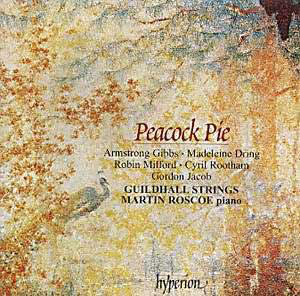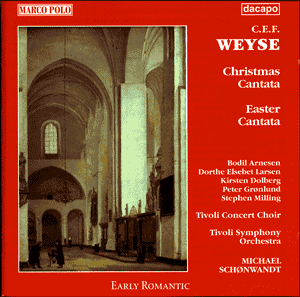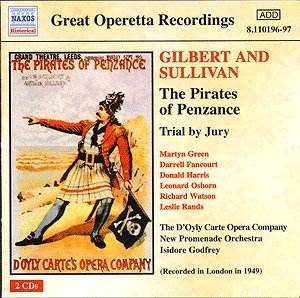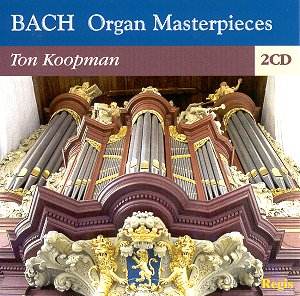 Composer: Various
Composer: Various
Works: Gordon Jacob: Concertino for Piano and Strings, 1954; Cecil Armstrong Gibbs: Concertino Op.103, 1942; Peter Warlock: Peacock Pie, 1933; Cyril Rootham: Miniature Suite, 1921; Robin Milford: Concertino in E major, 1955; Madeleine Dring: Festival Scherzo, 1951
Performers: Martin Roscoe (piano), Guildhall Strings, Robert Salter (director)
Recording: Henry Wood Hall, London, July 2001
Label: HYPERION
The collection featured on this recording presents a vivid portrait of British light music from the mid-20th century, anchored by a suite of works primarily for piano and strings. The composers represented—Gordon Jacob, Cecil Armstrong Gibbs, Peter Warlock, Cyril Rootham, Robin Milford, and Madeleine Dring—encapsulate a distinctive blend of whimsy, lyrical beauty, and folk influences. These pieces, while not strictly adhering to the larger concerto structure, engage in a dialogue that evokes both intimacy and grandeur, deftly capturing the essence of the British musical landscape during a period marked by innovation and reflection.
The performances are led by the accomplished pianist Martin Roscoe, whose nuanced interpretation brings out the textural richness of each piece, particularly in Gibbs’s Concertino, which is a standout. Here, Roscoe navigates the intricate motifs with a buoyancy that complements the string ensemble’s warmth. The opening bars, filled with a skipping motif, set a playful tone that Roscoe maintains throughout, effectively balancing seriousness with light-heartedness in the elegiac central movement. The engineering of this recording is commendable, allowing the subtleties of Roscoe’s touch to shine through while ensuring that the strings’ lush sonority is palpably present.
In contrasting the works, Rootham’s Miniature Suite hints at folk origins through its harmonic language and rhythmic vitality. The flurries of the outer movements juxtapose beautifully against the more reflective central section, offering a glimpse into the pastoral elements that permeate British music. The recording captures these nuances adeptly; one can hear the subtle interplay between piano and strings, which is fundamental to the success of this genre. The engineering choices favor a close-mic approach that highlights Roscoe’s expressive playing without overshadowing the ensemble’s contributions.
Peacock Pie, with its playful and sometimes whimsical character, serves as a delightful centerpiece. Warlock’s music often conjures images steeped in English folklore, and this recording does justice to its enchanting nature. The strings convey an ethereal quality that invites listeners into a world of fantasy, while Roscoe’s deft articulation of the piano line adds a layer of charm. The Festival Scherzo by Madeleine Dring, on the other hand, rounds off the program with an exuberant energy that is infectious. Its cheeky demeanor, coupled with an essential English romanticism, underscores the thematic cohesiveness of the disc.
This collection not only serves as a fine representation of the lighter side of British music but also invites reflection on its historical context. The works span a crucial period when composers were experimenting with forms and expressions that straddled traditional classical boundaries and popular idioms. The recording stands out not only for the quality of the performances but also for its thoughtful selection of repertoire, which highlights the diversity and richness of the British musical canon.
This disc is a delightful exploration of the piano and strings medium, reminding us of the charm and sophistication that can be found in British light music. With engaging performances and high-quality production, it provides both a refreshing perspective and a reaffirmation of the significance of these works in the broader classical repertoire. The ensemble’s collective synergy, coupled with Roscoe’s artistic sensitivity, makes for an engaging listening experience that should not be overlooked by enthusiasts of the genre.



